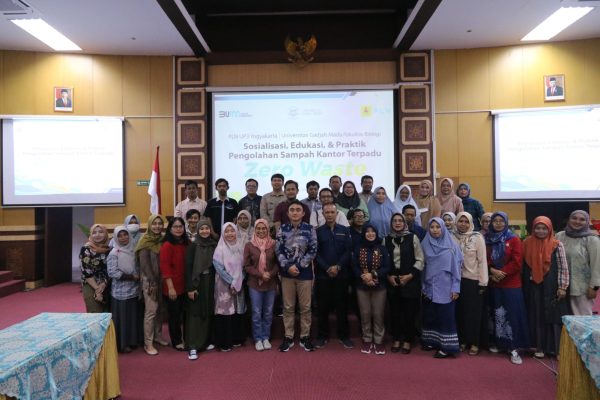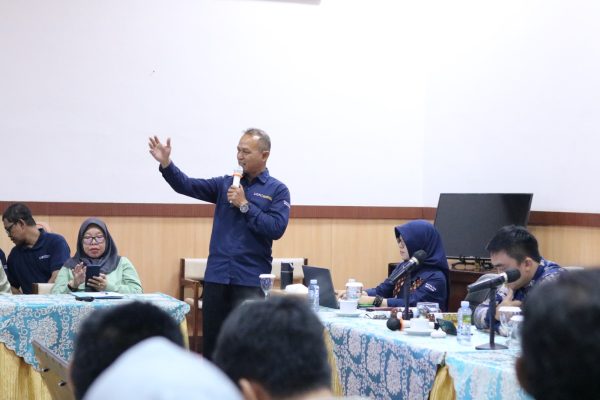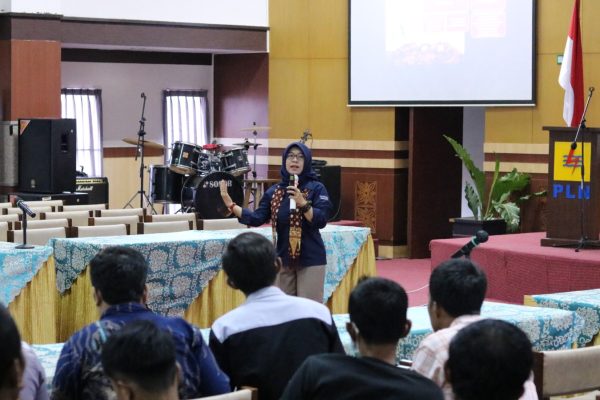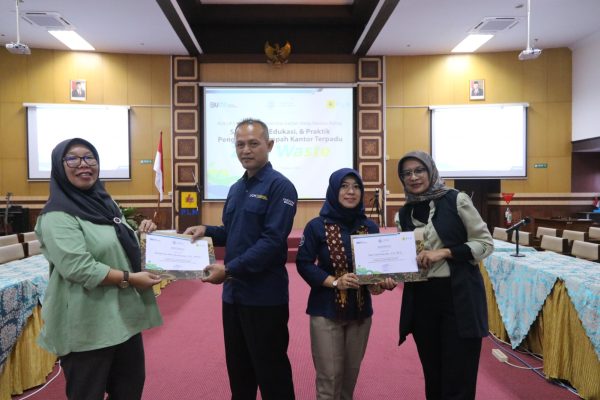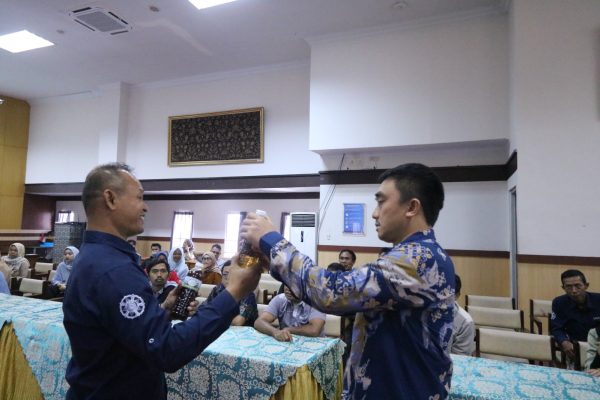On Wednesday, 7 February 2024, the Organic Waste Management Task Force from the Faculty of Biology provided a training session titled “Socialization, Education, and Practice of Integrated Office Waste Management – Zero Waste” for PT PLN UP3 Yogyakarta, held at the Malioboro Room on the fifth floor of the PT PLN UP3 Yogyakarta building. The task force was represented by Soenarwan Hery Poerwanto, S.Si., M.Kes., Dwi Umi Siswanti, S.Si., M.Sc., Suharjita, and Danang Sudarmadi, who were received by PT PLN UP3 Yogyakarta Manager, Adi Dwi Laksono, along with the management team, regional coordinator representatives, and the PT PLN UP3 Yogyakarta Women’s Organization. “PT PLN UP3 Yogyakarta was expected to independently manage office and household waste as a form of participation in the effort towards Yogyakarta’s freedom from waste emergencies,” expressed Adi in his opening remarks. During the implementation, Adi also hoped that PT PLN UP3 Yogyakarta and the Faculty of Biology UGM could establish a Memorandum of Understanding (MoU) or Cooperation Agreement (PKS) so that waste management could be carried out sustainably.
The training began with a presentation by Soenarwan Hery Poerwanto, S.Si., M.Kes., titled “Waste Management.” He explained that all waste could be utilized through reduction, reuse, and recycling, including residual waste which is currently managed by a residual waste management company in Klaten. He also presented the history of the establishment of the Faculty of Biology’s Organic Waste Management Task Force and several schemes for organic waste management that have been implemented in the faculty.
The second session, titled “Independent Waste Management as an Effort to Achieve Zero Waste Household,” was delivered by Dwi Umi Siswanti, S.Si., M.Sc. She explained the role of liquid organic fertilizer or LOF in plant growth and productivity, as well as its role in the growing medium. “The utilization of LOF for plants not only increases growth and productivity but also reduces production costs and serves as one of the efforts to manage organic waste in the environment,” said Dwi. The training continued with a practical session on waste processing, converting leaf litter into compost plus, which was compost with the addition of Bioferti 2023, one of the products of the Faculty of Biology’s Organic Waste Management Task Force. The compost-making practice was guided by Suharjita and Danang.
This training activity was a realization of Sustainable Development Goals number 3, which is Good Health and Well-being, and number 17, which is Partnerships for the Goals. “Hopefully, this training will be the starting step for PT PLN UP3 Yogyakarta to become a pioneer and pilot project for institutions capable of independently managing waste, thus becoming a role model for state-owned enterprises and other institutions in Yogyakarta,” concluded Adi, closing the training event.

